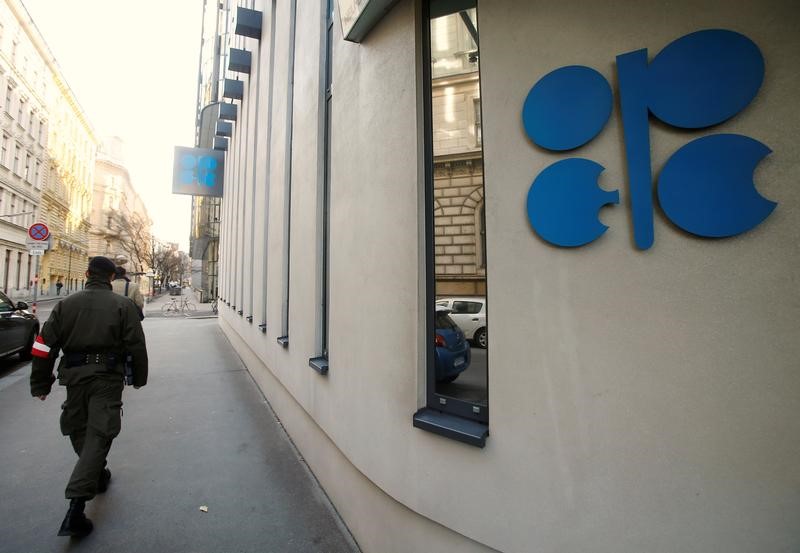By Peter Nurse
Investing.com - Oil prices turned lower Thursday, giving up earlier gains after officials from a group of major producers failed to agree on deeper production cuts in the face of a sharp drop in global demand growth.
By 9:00 AM ET (1400 GMT), U.S. crude futures were 0.5% lower at $50.48 a barrel, while futures in Brent, the global crude benchmark, were 1.2% lower at $55.61 a barrel.
Technical experts from the Organization of the Petroleum Exporting Countries and its allies, known as OPEC+, recommended a production cut of 600,000 barrels a day to offset the demand impact from the coronavirus outbreak.
This would likely be on top of the existing accord to cut 1.7 million barrels a day in output, which began in January and expires at the end of March.
However, the group didn’t reach a decision on the holding of an emergency meeting to ratify its recommendation this month, as Russia asked for more time to assess the impact of the outbreak.
“The combination of disrupted supply channels, a prolonged holiday period in China and thousands of flights cancelled have all led to the current situation where the market is dealing with a major demand shock from the world’s second biggest economy,” said Ole Hansen, Head of Commodity Strategy at Saxo Bank, in a research note. “While producers can control supply, a slump in demand is much harder to control as producers have to cut production while receiving less for what they sell.”
A 600,000 barrel a day cut “is insufficient unless Saudi Arabia decides to cut more on its own,” said Carsten Fritsch, analyst at Commerzbank (DE:CBKG), in a Bloomberg report. “Russia is unlikely to participate, which won’t be a problem if the Saudis do more.”
This lack of agreement undermined the positive sentiment generated earlier Thursday by China’s move to halve tariffs on $75 billion of U.S. imports from February 14.
The tariff reductions come as China struggles to mitigate the economic damage caused by the novel coronavirus outbreak, which has so far claimed more than 560 lives.
Evidence of the demand destruction in the Chinese energy complex emerged Thursday as. CNOOC, the country's biggest gas buyer, declared force majeure to get out of taking delivery of contracted volumes of liquefied natural gas, Reuters and Bloomberg reported, citing unnamed sources.
Natgas futures, already close to a four-year low, slumped another 1.1%.
